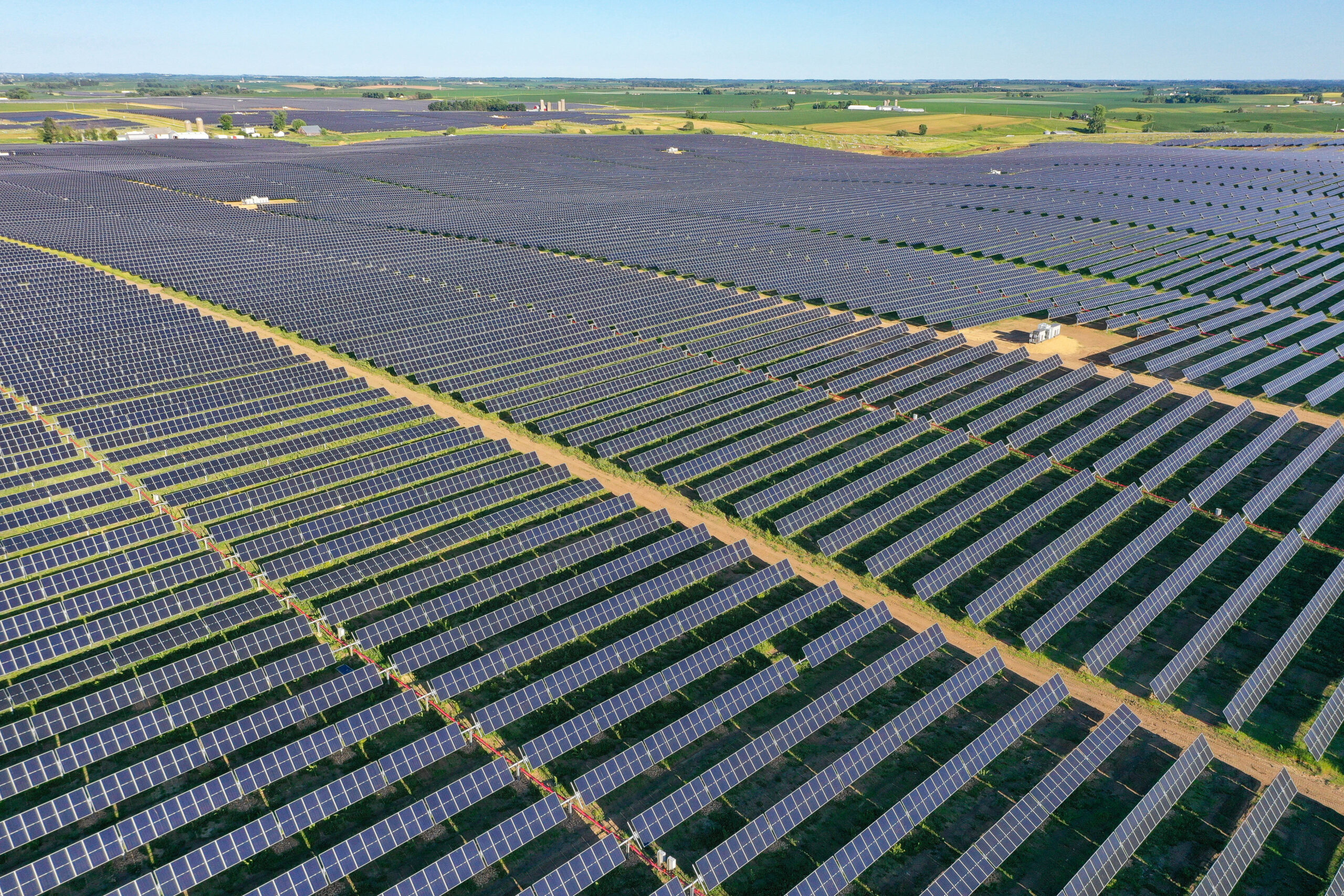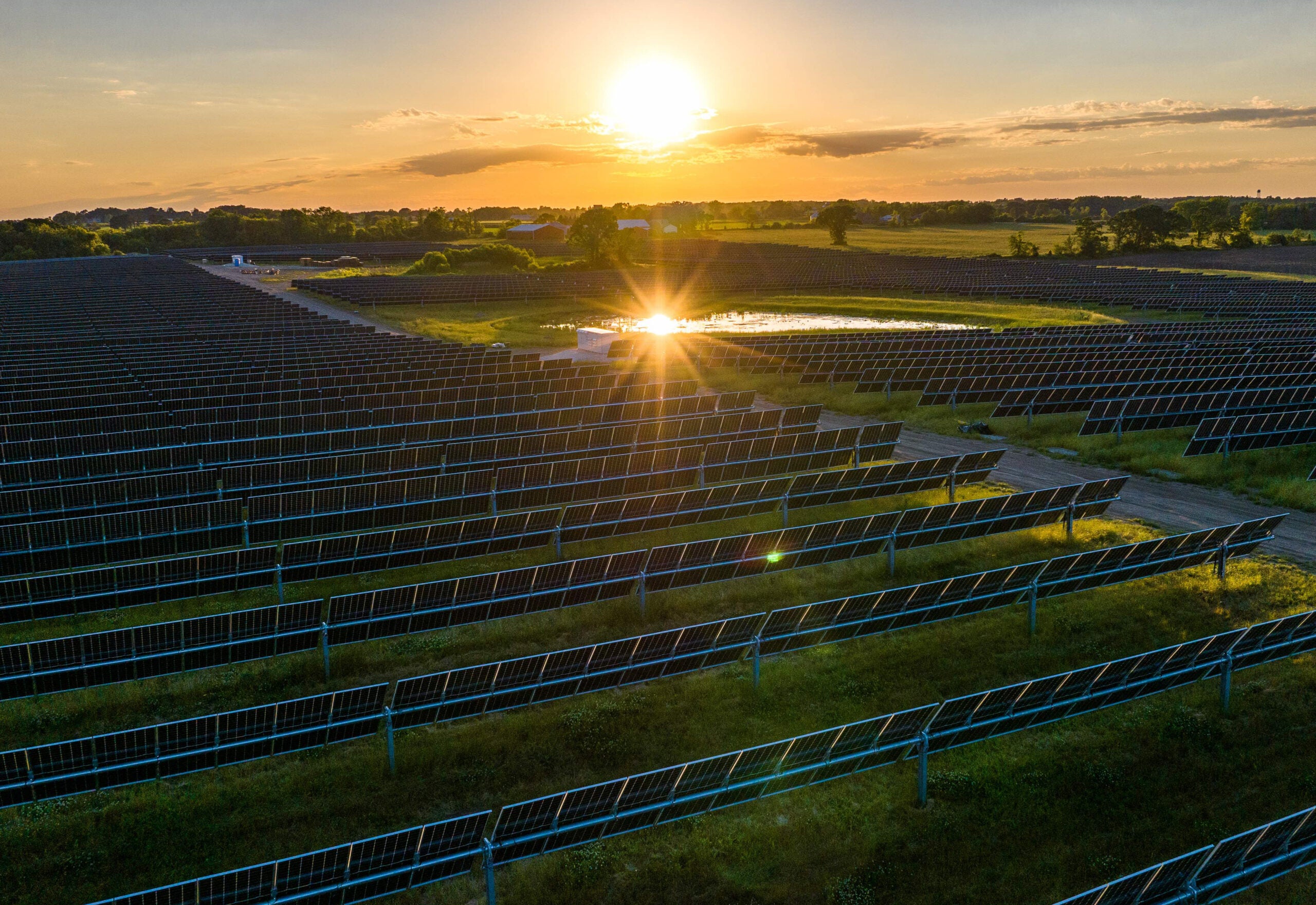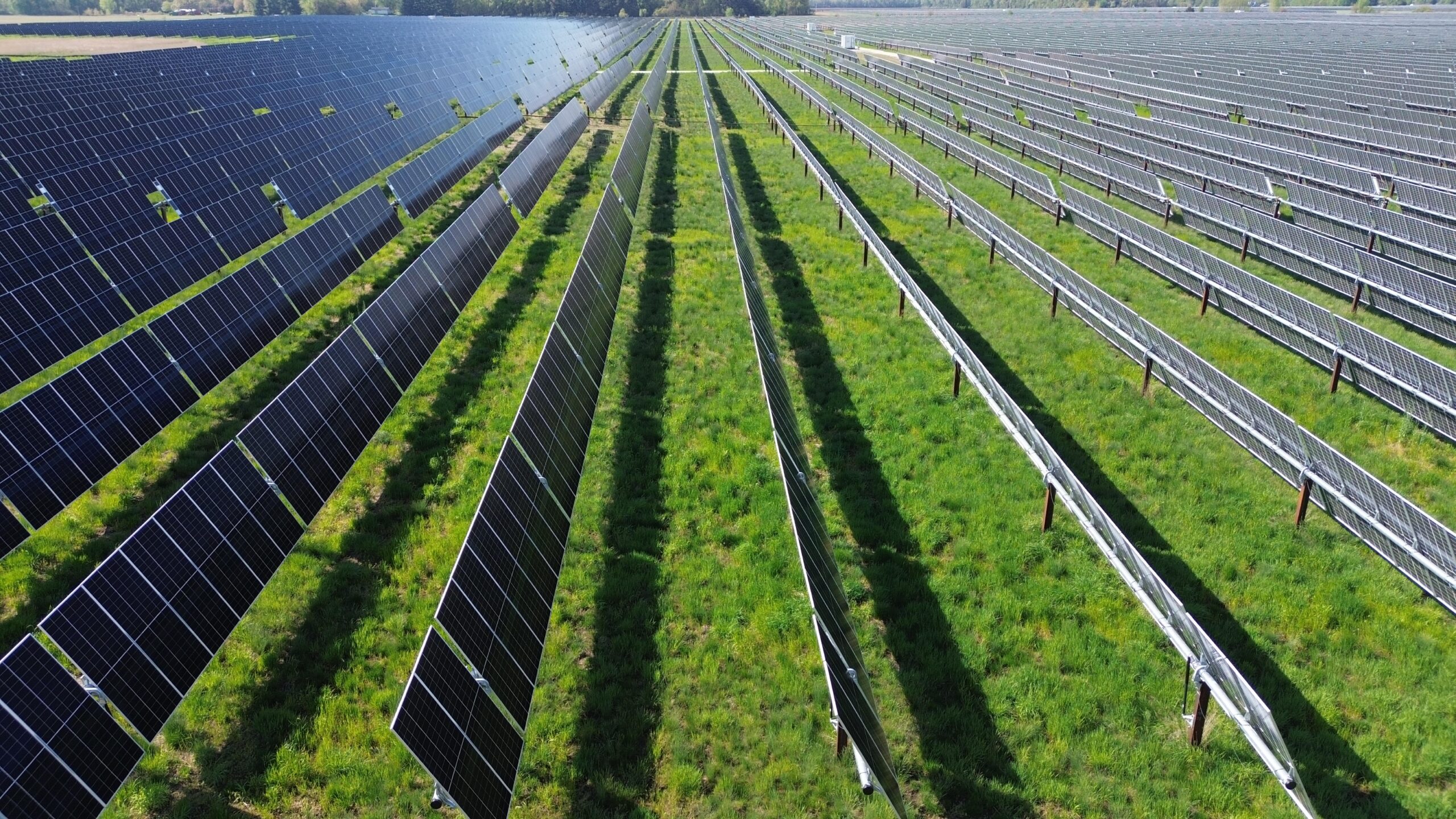The Public Service Commission has approved construction of the state’s largest renewable energy plant in Dane County.
Utilities, renewable energy advocates and environmental groups say the 465-megawatt Koshkonong Solar Energy Center will protect human health and the environment while transitioning away from fossil fuels in the state’s power mix. However, the plant has been met with strong opposition from neighbors, the Town of Christiana and the Village of Cambridge.
Utilities owned by Milwaukee-based WEC Energy Group and Madison Gas and Electric plan to spend $649 million to buy the plant.
Stay informed on the latest news
Sign up for WPR’s email newsletter.
Invenergy, a Chicago-based developer, has contracted with landowners on around 4,600 acres for the roughly 2,300-acre solar array in the towns of Christiana and Deerfield. The project would host 300 megawatts of solar — enough to power 60,000 homes — and 165 megawatts of battery storage.
“We’re really looking forward to delivering clean energy backed by battery storage for Wisconsin electricity customers,” Dan Litchfield, Invenergy’s vice president of renewable development, said.
The project is expected to inject $140 million into the local economy over the life of the plant and create 600 jobs during peak construction, according to Invenergy.
PSC Chair Rebecca Valcq and Commissioner Ellen Nowak voted in favor of the project on Thursday while Commissioner Tyler Huebner abstained. Both Valcq and Nowak said opposition to the plant resembles a “not in my backyard” or nimby mindset.
“It rises to the level of banana, which is Build Absolutely Nothing Anywhere Near Anything. We don’t have that luxury,” said Valcq. “We are faced with a transition that has been announced.”
Nearby residents had expressed concerns about the project’s effects on aesthetics, property values, loss of prime farmland, safety concerns with battery storage, and its proximity to homes and Cambridge Elementary School. Town of Christiana resident Tara Vasby said commissioners were disrespectful when they referred to her and local communities as nimby’s.
“It was literally a slap in the face – just the complete and wholehearted disregard for any of the concerns of this community,” said Vasby.
She said she would like the Legislature to take another look at regulations for renewable energy projects, noting the state has no siting rules for utility-scale solar.
Opponents also argued Invenergy’s land leases with property owners violate the Wisconsin Constitution, which opponents said limits leases on farmland to 15 years. Invenergy has lease agreements with landowners that last 25 years and can be extended for a maximum 50-year operating term.
Utilities accused neighbors and the town of Christiana of “grasping at straws” by using an “antiquated” and “inapplicable” section of the Wisconsin Constitution to stop the project.
Both Nowak and Valcq agreed opponents’ arguments lacked merit.
Attorney Frank Jablonski disagrees. He’s representing a Cambridge couple who opposes the project.
“That may have to just be a debate in front of a court and let the courts sort it out,” said Jablonski. “With respect to the local landowners and the communities, it seems like the commission is just going to do what the energy companies want.”
Duane Hinchley, 60, is a second-generation farmer. His family milks 240 dairy cows and farms 2,500 acres of cropland in Cambridge.
When Invenergy initially approached his farm, Hinchley said he didn’t sign a lease agreement right away. But he said rising costs and inflation have decreased profits for the farm over time.
“The solar gives us the opportunity to actually have maybe a retirement even for us and to help transition our daughter into the farm to (make it) sustainable,” said Hinchley. “You got to be first financially stable before you can be anything else sustainable, right? If you can’t make ends meet, nothing else matters.”
Heather Allen, executive director for RENEW Wisconsin, said the project will provide about a quarter of the energy needed by Dane County’s 240,000 households. She said the plant also provides a quarter of the solar capacity that Dane County called for in its climate action plan.
“To reach those clean energy commitments, we need to shift the grid to more renewables,” said Allen.
Clean Wisconsin said in a statement that the Koshkonong Solar Energy Center is expected to reduce phosphorus runoff to nearby waters by 96 percent due to the conversion of crop land to grassland. The project is also anticipated to reduce carbon emissions by 15 to 20 million tons over its lifespan.
“Every kilowatt of clean energy adds up to make a difference, and given the urgency of climate change, a 465 MW project like Koshkonong is a big step in matching the scale of the crisis with the scale of solutions,” Chelsea Chandler, the group’s energy and air program director, said.
Both Madison Gas and Electric and WEC Energy Group have set goals to go carbon-neutral in line with Gov. Tony Evers’ goal for the state to produce carbon-free electricity by 2050.
“This is a positive step for clean energy in Wisconsin,” Brendan Conway, WEC Energy Group spokesperson, said in a statement. “We look forward to continuing to work with the Commission on our plan to purchase this project to help provide customers the affordable, reliable and clean energy they depend on.”
We Energies and Wisconsin Public Service — WEC Energy Group’s largest utilities — would own 90 percent of the solar and battery storage project. Madison Gas and Electric would own the remaining 10 percent.
“We believe that if approved, this project will provide cost-effective, carbon-free energy for our customers and help us achieve net-zero carbon electricity by 2050,” Steve Schultz, MGE spokesperson, said in a statement.
Invenergy hopes to begin construction late this year or early next spring. The project is slated to go in service in 2024.
Wisconsin Public Radio, © Copyright 2025, Board of Regents of the University of Wisconsin System and Wisconsin Educational Communications Board.



